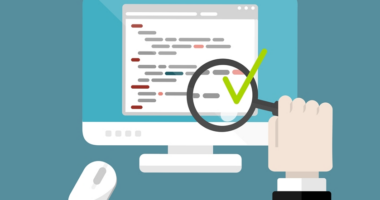With the help of software, you can create a great work schedule. This software is designed to help you manage a worksite, which may be different from your personal worksite. There are many such software solutions for creating work schedules, but depending on the type of it that you have, you may have different options.
Employee scheduling software is a very important tool that helps to schedule the workforce effectively and efficiently. In the past, it was a complex process and many companies used spreadsheets for scheduling employees and keeping track of their work schedules. While there is nothing wrong with this approach, it is not the best way to schedule employees. The problem is that it’s not easy for managers to keep track of different employees and their schedules.
Disclosure: This content is reader-supported, which means we may receive a commission if you click on some of our links.
It’s no fun when you’re understaffed or not getting your due.
For a small business, a single glitch can turn an entire morning upside down. For large companies with multiple offices, staying organized is even more difficult.
Employee scheduling software makes the work of human resource managers much easier. You can create a schedule in minutes, update it instantly and swap people around as needed.
Plus, your team will appreciate an always up-to-date schedule that can be accessed from any device. Reduce miscommunication when everyone is looking at the same calendar, no matter where they are.
What is the best workforce management software? Below you’ll find in-depth reviews of each of my top picks, as well as a concise guide to help you find the best tool for your workplace.
#1 – Review of Homebase – the best employee scheduling software for small businesses
Homebase is an employee scheduling tool designed specifically for small businesses. It is versatile enough to meet the planning needs of a wide range of industries, including retail, beauty and health, service and restaurants.
More than 100,000 companies rely on Homebase, and not all of them pay for it.
I’m serious. Homebase has a freemium business model. If you want advanced features, consider one of the paid plans. However, if you only need a scheduling system, Homebase will more than meet your needs.
You have a beautiful interface that employees and managers can access 24 hours a day, 7 days a week. The calendar is updated in real time, so everyone is on the same page.
With Homebase, you can enjoy benefits and features such as. B :
- Simple schedule templates that you can customize in an instant
- Easily share schedules with the whole team
- Ability to forecast labour costs
- Employees have access to real-time schedule updates via the mobile app.
- Track employee availability, leave requests and approvals.
- Automatically remind employees about their upcoming assignments
- Manage exchanges from any location
- Calculate overtime and receive alerts in case of scheduling conflicts.
In addition to these robust scheduling features, Homebase is a complete solution for time tracking, recruiting, onboarding, team communication, HR and compliance.
You can also improve work forecasting by integrating sales data from point of sale systems such as Square, Clover, Shopify, Upserve, Revel, Lightspeed, etc.
Popular payroll software such as Paychex and Gusto are also integrated with Homebase.
For hourly workers, a calendar linked to payroll saves a lot of time.
The free version of Homebase works for an unlimited number of employees. You don’t have all the features, but you do have scheduling, time tracking, team messaging and integration with payroll and POS.
To get the most out of the software, you can upgrade to a paid plan that starts at $14 per month per seat. Find out more and register now.
#2 – Sage HR in the test – the best end-to-end HR solution for
Sage HR (formerly CakeHR) is a complete human resources management software. In this versatile workforce management solution, you will find robust tools for team planning.
Overall, Sage HR is an excellent choice for any company looking to automate HR tasks and improve the planning process.
Other employee scheduling features worth noting include:
- Interactive team planning with a user-friendly interface
- Single and multi-site compatibility
- It is easy to divide the schedule into groups and departments with multiple team leaders.
- Self-service tools for employees, with the ability to add preferred hours and unavailable hours.
- Drag and drop layer management
- Daily, weekly and monthly reports
- Full data export
In addition to scheduling tools, you also get leave management, time tracking, hiring, performance management, employee records and other necessary HR functions.
Sage HR starts at $8.50 per month for basic HR management and planning. Additional modules must be paid for separately. The program is easy to set up and you can try it free for 14 days.
#3 – Substitute exam – best for time and attendance.
Deputy is one of the most popular employee scheduling tools on the market today. More than 200,000 brands worldwide rely on it, including big names like Nike, Amazon, HubSpot and Peloton.
I like Deputy because it is multi-purpose, yet has simple and manageable pricing.
You can combine employee scheduling with time management software for as little as $4 per user per month. In addition, each of these features can be purchased separately for $2.50 per user.
Here is a brief overview of some of the other important features and benefits that this software offers you:
- Easily fill vacancies based on staff availability, qualifications and cost.
- Immediate approval of schedules for your team
- Real-time labor cost data
- Automatic planning possibilities thanks to artificial intelligence
- Planning breaks and observing rest periods
- Manage your schedule from anywhere with iOS and Android apps
- Application, approval and monitoring of PTOs
- Automate salary calculation
- Capture timesheets and export them to payroll with one click.
- See in real time who is on duty, who is on break or who is running late.
Any company that needs an easy way to manage employee schedules and timekeeping with a single solution will definitely benefit from the Assistant.
Try it 31 days free; no credit card required.
#4 – ShiftNote Review – The easiest employee scheduling software
ShiftNote is one of the easiest workforce scheduling tools on the market today. More than 75,000 users from a wide range of industries rely on this software.
I like ShiftNote because they have specific solutions for categories like restaurants, hotels, retail, manufacturing, healthcare, education, and breweries.
Here are some of the main reasons why ShiftNote is high on my list:
- Free mobile app, free team messaging and free customer support.
- Employees can update their job information and change jobs.
- Planning templates, so managers don’t have to create them from scratch
- Free installation and individual training
- Multi-location dashboard
- Management of requests for compensatory leave
- Sales and workforce forecasting tools
- Daily protocol reports
Overall, ShiftNote significantly increases the speed of the scheduling process and optimizes its efficiency. It is a reliable way for management and employees to communicate from anywhere.
It should be noted that ShiftNote does not have some of the employee scheduling and time tracking features that other tools on the market offer. But if you’re just looking for a simple programming solution, it should definitely be at the top of your priority list.
You can try ShiftNote for free with a 30 day trial period.
#5 – Shiftboard Review – The best for work management
Shiftboard is another great workforce management solution for scheduling hourly paid employees. It is a feature-rich software that offers many different options for solving common business tasks related to scheduling.
These include control of labour costs, employee retention, fatigue management, compliance, etc.
Shiftboard actually offers two different scheduling tools, SchedulePro and ScheduleFlex. The Pro version is designed for demanding industries such as corrections, oil and gas, and petrochemicals. The Flex version is designed for companies with changing scheduling requirements, for example, in healthcare, human resources, call centers, warehousing and distribution, public safety and manufacturing industries.
Other notable features of Shiftboard software include:
- Real-time notification of schedule updates and new available shifts.
- Automatic filling of shifts according to calls and absences.
- Employees can confirm last-minute assignment requests directly through the mobile app.
- Employees may work extra shifts and rotating shifts (with permission).
- Individual working hours depending on department and location
- Intelligent grouping of teams based on employee qualifications, certifications, etc.
- Accurate forecasting of staffing based on demand
- Prevent overstaffing and understaffing
- Planning automation tools
Over 60,000 orders rely on Shiftboard for employee scheduling. They even have additional features for applicant tracking and a geo-zone clock.
Request a free demo today to get started.
#6 – HotSchedules by Fourth – the best workforce management system for the hospitality industry
HotSchedules (now part of Fourth) is a comprehensive workforce management solution designed specifically for the hospitality industry.
In addition to employee scheduling, HotSchedules also has tools for applicant tracking, registration, time tracking, manager logs and more. They even have solutions for inventory management, human resources and payroll.
In terms of scheduling options for employees, here’s a look at the key benefits of HotSchedules:
- Simple drag and drop planning tool
- Preparation of sampling plans
- Reduction of scheduling errors, understaffing and overstaffing.
- Limitation of unplanned overtime
- Management of employee leave and availability
- Approve or decline assignment requests from any device
- Quick access to daily register reports
- Compliance tools for meals, breaks, fair work week, etc.
Depending on your needs, HotSchedules can be as simple or as complex as you like. You can use only employee scheduling tools or create a robust, customized solution with many features and add-ons for your business.
Whichever option you choose, HotSchedules is definitely my first choice for restaurant and hospitality businesses. Request a free demo to get started.
What I was looking for to find the best employee scheduling software
Two restaurants in the same city may have very different staffing needs depending on how they operate.
In other words: There is no one-size-fits-all solution for all companies, or even for all sectors.
Focus on your daily activities and constantly assess how well each workforce planning tool meets your real-world needs.
The following are the basic criteria to be used in evaluating the available solutions.
Number of employees and location
A small cafe with six employees in one location will not have to meet the same requirements as a restaurant chain with 500 employees in a dozen locations.
Some programs are designed to be scalable, while others are intended for small businesses and individual sites.
When weighing your options, also think about the future of your business. If you may only have 50 employees today, how many will you have in six months? In 12 months? If you want to grow quickly, make sure the software you choose can handle your growth.
Time recording function
For some companies, planning and time recording go hand in hand. Employees must come, go and record their time.
For other companies, time registration is less important. Employees are either present during their shift or absent. A simple presence function is all you need.
If time tracking is an important part of how your employees show their work and get paid, I highly recommend purchasing employee scheduling software with built-in features.
First, you don’t have to buy separate time tracking software that is difficult to integrate into your schedule. It makes things easier.
It’s even better if your employee scheduling software is directly linked to your payroll, because then you don’t have to enter the hours manually. When timekeeping, scheduling and payroll work together, there are fewer errors that annoy employees and frustrate managers.
Flexible access
The best employee scheduling software is usually offered as an online solution. You want your employees to have easy access to your schedule, wherever they are. This is not possible with desktop software.
I also recommend looking for an employee scheduling solution that has a free mobile app. Your employees can then essentially carry an updated schedule in real time 24 hours a day, 7 days a week.
These applications are ideal for communication between team members and instant notifications of schedule changes or work reminders.
Mobile and browser-based access to schedules is essential when your employees are working remotely or in the field.
And even if everyone is in the same office or restaurant, employees will certainly appreciate being able to check appointments or send messages no matter where they are.
Industrial Solutions
There are many general purpose employee scheduling tools on the market today. However, if you belong to a specific category, look for a tool that is specifically tailored to your sector.
Restaurants and the hospitality industry are two sectors that come to mind. Many programs focus on these types of businesses because the planning needs are greater in these cases.
If you have the option of using software designed specifically for your industry, I would prefer that option when making your final decision.
Additional facilities and options
As mentioned earlier, many employee scheduling programs offer more than just the ability for managers to post weekly schedules.
The best tools also have shift rotation, employee self-service tools, HR functions, payroll management, leave management, attendance tracking, team messaging, overtime monitoring, time clock, etc.
Depending on the nature and needs of your business, some additional services are certainly more important than others. So when shopping, pay attention to these different options.
Summary
What is the best workforce management software?
The answer really depends on what you are looking for. But whatever your needs, you can find the right option for your business based on my recommendations in this guide:
- Homebase – The best employee scheduling software for small businesses
- Sage HR (formerly CakeHR) – the best end-to-end HR solution.
- Deputy – the best for time and attendance management
- ShiftNote – the simplest employee scheduling software
- Shiftboard – the best for work management
- HotSchedules by Fourth – The best workforce management system for the hospitality industry
Just go back to the methodology I described earlier to simplify the buying process. This will make it much easier to narrow down your options.
- SEO – Unlocks a large amount of SEO traffic. To see real results.
- Content marketing – our team creates epic content that gets shared, attracting links and traffic.
- Paid media – effective paid strategies with a clear return on investment.
Frequently Asked Questions
What is the best rostering software?
The best rostering software is the one that works for you.
Which software is used for scheduling?
The software used for scheduling is called the “Scheduling Engine”.
What is the best way to schedule employees?
The best way to schedule employees is to use a time clock.
Related Tags:
Feedback,free employee scheduling softwarestaff scheduling softwareshiftnoteemployee scheduling algorithmopen source employee scheduling softwarebest free scheduling software,People also search for,Privacy settings,How Search works,Acuity Scheduling, Inc.,vCita, Inc.,StormSour… LLC,Wrike,See more,free employee scheduling software,staff scheduling software,shiftnote,free employee scheduling software download,employee scheduling algorithm,employee scheduling software for multiple locations,open source employee scheduling software,best free scheduling software



